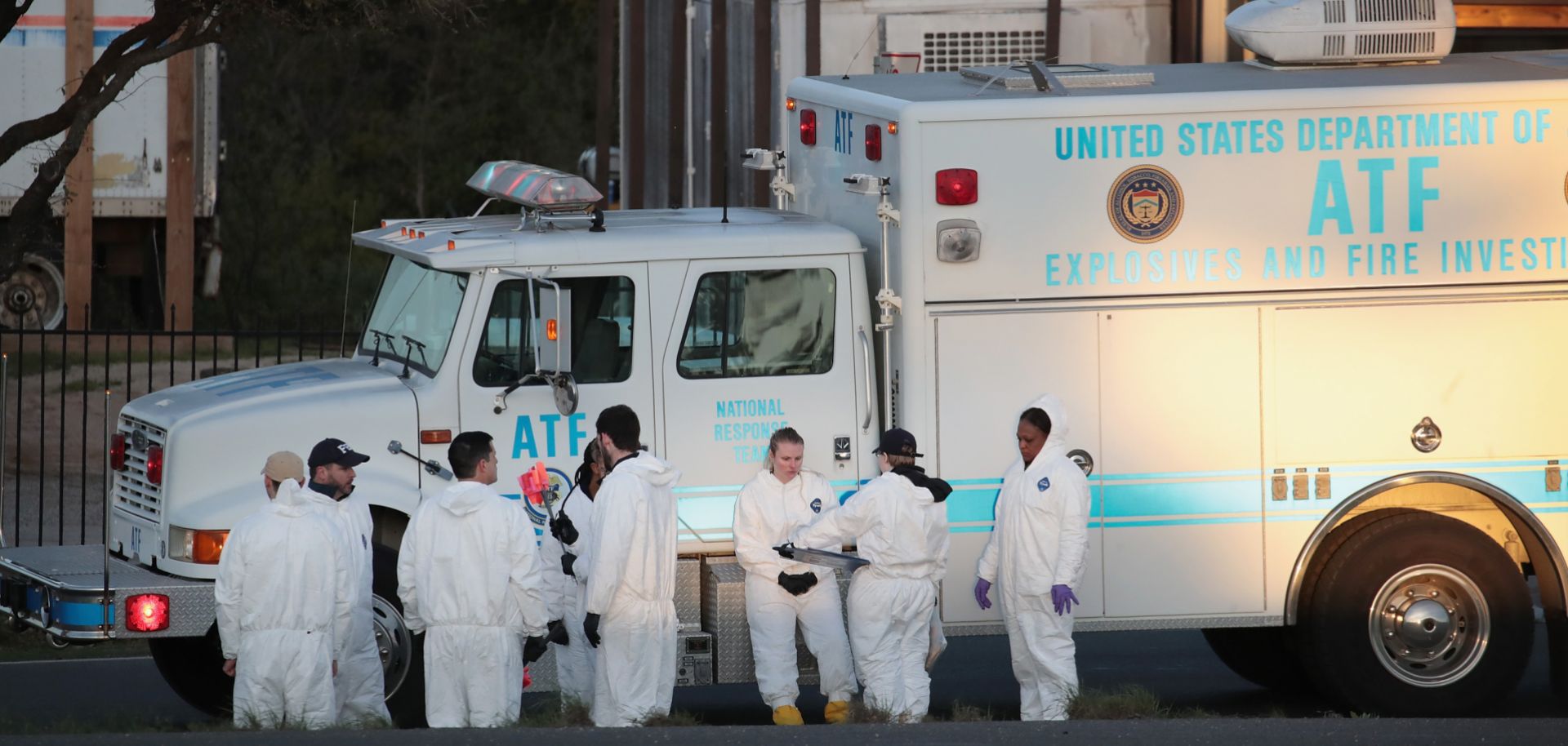COLUMNS
Motive Matters: Why the Austin Bomber Wasn't a Terrorist

Mar 27, 2018 | 08:00 GMT

Law enforcement officials search for evidence at the location where the suspected package bomber was killed in suburban Austin on March 21 in Round Rock, Texas. Mark Anthony Conditt, the 24-year-old suspect, blew himself up inside his vehicle as police approached to take him into custody.
(Scott Olson/Getty Images)
Subscribe Now
SubscribeAlready have an account?
